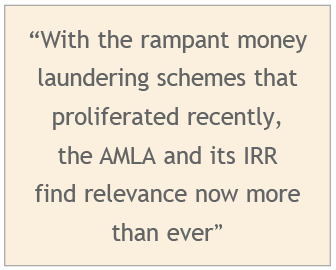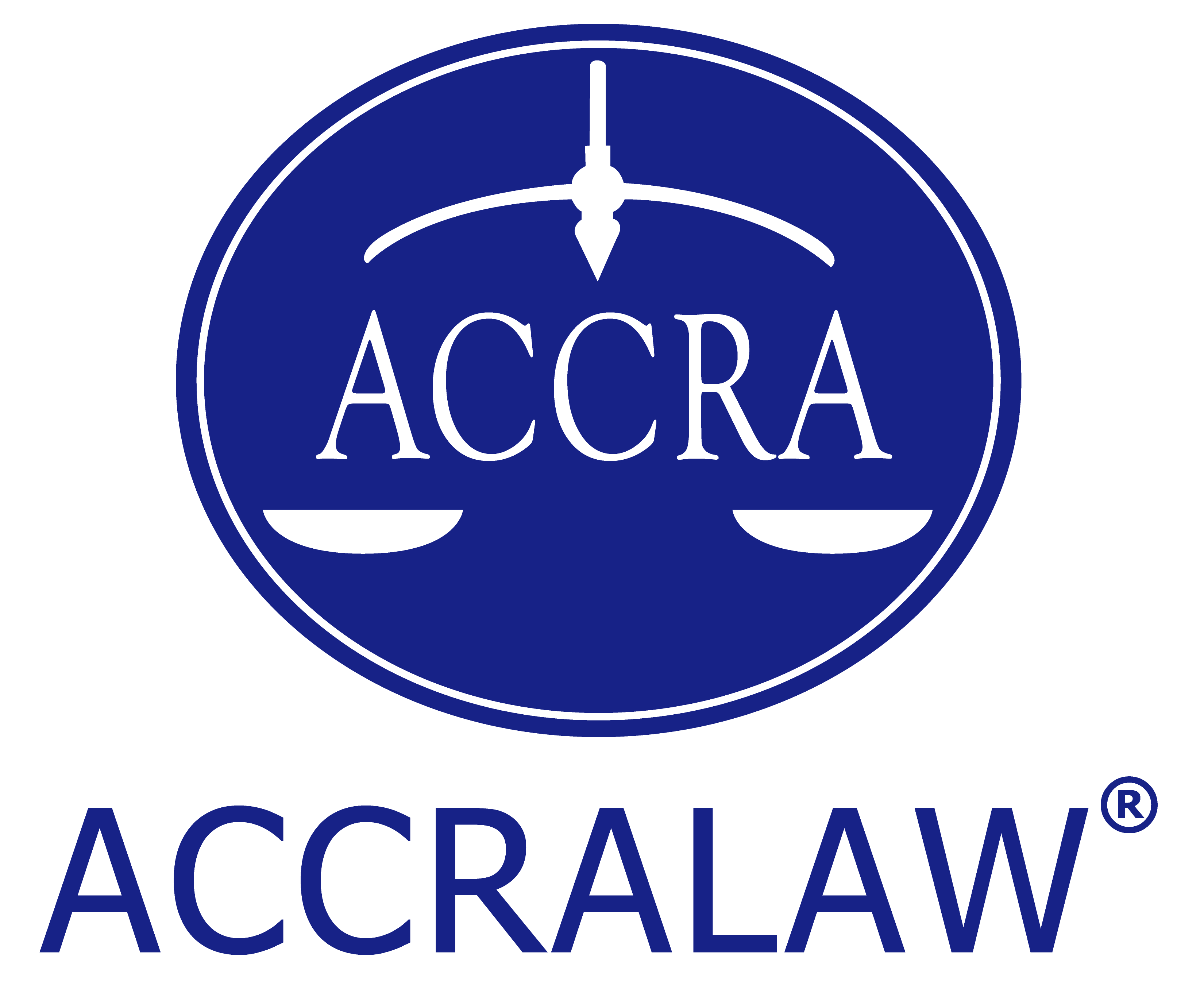 By Kristian Angelo P Palmares, ACCRA Law
By Kristian Angelo P Palmares, ACCRA Law
For several decades, money laundering has extended the reach of transnational organised crime throughout various nations. As seen in pop culture, drug lords and mobsters regularly ship off “dirty money” from their illegal trade into offshore bank accounts, thus making such funds appear “clean”.
In a more real and contemporary setting, it was recently reported that more than US$1 billion was laundered in Venezuela through a sophisticated scheme which involved the embezzlement of funds from a state-owned oil company and the corresponding utilisation of a foreign exchange system to convert such funds at a fixed rate for US dollars, considerably below the true economic rate.
As the IMF estimates that the amount of money laundering occurring on a yearly basis could range between 2 and 5 percent of the world’s GDP, or somewhere between US$600 billion and US$1.5 trillion, various states have taken efforts to curtail money laundering in the form of multinational treaties, regional agreements and local legislation. Thus, amid persuasion from the international community, the Philippines and many other nations enacted local laws to curtail such acts.
In response to the recent trends in transnational money laundering, the Bangko Sentral ng Pilipinas (BSP) emphasised the need to strictly implement the Anti-Money Laundering Act (AMLA) of 2001 as means of fortifying the Philippines from money laundering activities.
Under the AMLA, money laundering is a crime wherein the proceeds of an unlawful activity are transacted, thus making them appear to have originated from legitimate sources. While the AMLA presupposes the commission of a distinct unlawful act (eg kidnapping, qualified theft, graft and corruption), money laundering itself contemplates the entry of dirty money into a legitimate financial institution to give it a semblance of legality. In addition to criminal prosecution, the state may also initiate civil forfeiture, asset preservation and freezing of properties representing, involving or relating to an unlawful activity or money laundering offence. Indeed, the state imposes stiff penalties on money laundering due to its pernicious effects, such as reduced tax revenues and proliferation of underground economies that stifle legitimate businesses and financial institutions.

The Anti-Money Laundering Council (AMLC), composed of the governor of the BSP as chairman, and the commissioner of the Insurance Commission and the chairman of the Securities and Exchange Commission as members, is the lead agency tasked with implementing the provisions of the AMLA. To date, the AMLC has efficiently carried out its mandate by successfully initiating cases for violations of the AMLA and securing successful forfeiture cases relative to unlawful proceeds thereof.
The Philippine stance on money laundering remains just as dynamic more than a decade after the passage of the AMLA. Recently, the AMLC approved the 2018 Implementing Rules and Regulations (2018 IRR) of the AMLA shortly before the Venezuelan expose and in the wake of the results of the Second National Risk Assessment, where the AMLC led a thorough evaluation of the country’s preparedness against money laundering.
The 2018 IRR incorporated certain amendments under Republic Act No. 10927, which included casinos, including internet-based casinos and ship-based casinos, with respect to their cash transactions related to their gaming operations. On this note, the AMLC requires casinos to report transactions over Ps5 million (US$96,000) or other currency equivalent within five working days. This means players should keep their bets and transactions well under Ps5 million if they do not want to be flagged by this rule and reported to the authorities. Casino owners must also yield to compliance checks and investigations by the AMLC if they suspect money laundering or terrorism financing, at the risk of severe penalties and fees.
The 2018 IRR likewise feature new rules on the AMLC’s obligation to work in coordination with law enforcement agencies in the conduct of its cases, ascertain beneficial ownership relative to legal entities, enhancement of customer due diligence, national risk assessment and management, and AMLC supervision and compliance checking. Additionally, the AMLC also established guidelines on keeping databases for customer records, reporting, registration, to name a few. Adoption of these measures would enable the AMLC to easily enforce compliance in the financial and business sectors.
Indeed, with the rampant money laundering schemes that proliferated recently, the AMLA and its IRR find relevance now more than ever. Whether the current state of our justice system is sufficient to speedily and efficiently rectify the constantly-evolving money laundering concern remains to be seen. At any rate, there is no question that the AMLA and the AMLC’s recent issuance of the IRR is a great step forward in addressing transnational money laundering.
______________________________
The views and opinions expressed in this article are those of the author. This article is for general informational and educational purposes, and not offered as, and does not constitute, legal advice or legal opinion.
(Note: This article first appeared in Business World, a newspaper of general circulation in the Philippines.)

T: (632) 830 8000

